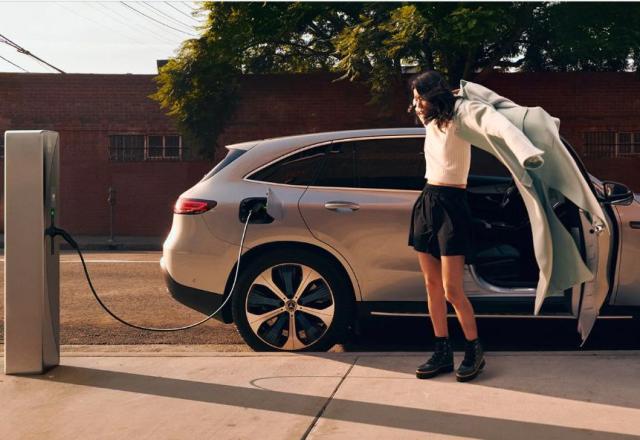The U.S. Energy Department (DOE) is considering revising the way it calculates the fuel economy rating of electric vehicles (EVs) and plug-in electric hybrids to align with government requirements.
The current system used in the National Highway Traffic Safety Administration’s (NHTSA) Corporate Average Fuel Economy (CAFE) program has not been updated for over two decades.
The proposed regulation aims to encourage the adoption of EVs while preventing lower fuel economy among conventional vehicles, which comprise the majority of vehicles sold. The Alliance for Automotive Innovation, which represents major automakers, expressed concerns about the proposed revision and its implications on EV adoption.
Under the new proposal, the miles per gallon equivalent (MPGe) ratings of several EV models would decrease significantly. Environmental groups petitioned for this change, claiming that high imputed fuel economy values for EVs could guarantee compliance without improving the real-world average fuel economy of automakers’ overall fleets. Tesla supports the petition.
The Environmental Protection Agency is also proposing new rules to reduce vehicle emissions and increase EV sales, consistent with President Joe Biden’s goal for half of new US vehicles to be electric or plug-in hybrids by 2030. NHTSA is expected to propose new CAFE requirements as well. Failure to meet CAFE requirements could result in fines or the purchase of credits.
Environmental groups note fuel economy ratings for EVs is far higher for determining CAFE compliance than those listed on the government’s consumer fueleconomy.gov website.
“Encouraging adoption of EVs can reduce petroleum consumption but giving too much credit for that adoption can lead to increased net petroleum use because it enables lower fuel economy among conventional vehicles, which represent by far the majority of vehicles sold,” DOE said in its proposed regulation.
The Alliance for Automotive Innovation, which represents major automakers, warned last year that lowering the values could have far-reaching implications and would discourage EV adoption.
The group said it was unclear how the proposed DOE calculation would be incorporated in future CAFE standards.
A Volkswagen ID.4 EV with a current 380.6 MPGe under CAFE would get 107.4 MPGe under the DOE proposal, while a Ford F-150 EV drops from 237.1 to 67.1 MPGe and Chrysler Pacifica plug-in hybrid falls from 88.2 to 59.5 MPGe.
The Natural Resources Defense Council and Sierra Club petitioned for the change in 2021, arguing excessively high imputed fuel economy values for EVs means that a relatively small number of EVs will mathematically guarantee compliance without meaningful improvements in the real-world average fuel economy of automakers’ overall fleets.
The Environmental Protection Agency on Wednesday will propose new rules to spur sweeping cuts in vehicle emissions that will push automakers towards a big increase in electric vehicle sales, sources told Reuters last week.
The 2027 to 2032 model year pollution cuts are expected to result in at least half of the new U.S. vehicle fleet by 2030 being electric or plug-in hybrids, sources said, in line with a goal President Joe Biden outlined in 2021.
NHTSA is expected to soon propose parallel new stringent CAFE requirements. In 2022, NHTSA sharply boosted CAFE standards for vehicles, reversing former President Donald Trump’s rollback.
Automakers buy credits or pay fines if they cannot meet CAFE requirements. Stellantis (earlier known as Fiat Chrysler) paid $152.3 million in CAFE fines for 2016 and 2017 and faces additional civil penalties. In 2022, NHTSA more than doubled CAFE penalties.

